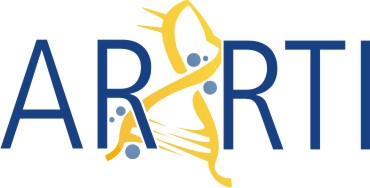This event is from the archives of The Notice Board. The event has already taken place and the information contained in this post may no longer be relevant or accurate.

The Alberta RNA Research and Training Institute presents Dr. Joseph Ross, a new postdoctoral fellow with Dr. Nehal Thakor. His talk is titled "Host-imposed regulation of bacterial transposition." The ARRTI Speaker Series is open to the public and was established to bring leading researchers to the University of Lethbridge for lectures on a broad range of topics relating to RNA research. All are welcome!
Abstract:
Transposons are pieces of DNA which encode the genes necessary to catalyze their movement from one physical location to another within a given genome. As such, they are key players in a bacterial process called horizontal gene transfer, which allows genetic material to be transferred from one bacterial cell to another. Additionally, transposons often encode antibiotic resistance genes; thus, they are integrally tied to the spread of antibiotic resistance among bacterial species. Cellular stress (such as nutrient deprivation or an immune response) can cause increased transposition, which might benefit the bacteria as a species by increasing genetic plasticity. It is therefore important to understand how transposons have become integrated into the genetic regulatory networks of their bacterial hosts. The goals of my doctoral work were to further investigate 1) new host-factors that regulate transposition, 2) post-transcriptional regulation as a means of regulating transposase expression, and 3) how cellular stress-response is tied to transposon mobility. I used the well-studied Tn10 and Tn5 transposons in Escherichia coli as model systems. I showed that Tn10 transposition is strongly repressed at the level of transposase translation by the global post-transcriptional regulator, Hfq—an RNA chaperone that enhances the base-pairing interactions of trans-encoded small regulatory RNAs (sRNAs) with their target mRNAs. As translation of the Tn10 transposase mRNA (RNA-IN) is strongly repressed by a cis-encoded antisense regulator (RNA-OUT), I investigated whether Hfq was enhancing this negative regulation. Further evidence showed that Hfq down-regulates Tn10 transposase translation by two pathways, one of which involves RNA-OUT. Hfq had not previously been shown to function in regulation by a cis-antisense RNA. I showed that Hfq binds RNA-IN and RNA-OUT via known mRNA- and sRNA-binding sites, and that it enhances the rate of RNA-IN/OUT pairing in vitro. This ability was lost, along with in vivo regulation of transposition, to Hfq mutants lacking RNA-binding specificity at these surfaces. I presented further evidence that Hfq alters the secondary structures of both RNA-IN and RNA-OUT such that inter-molecular base pairing would be facilitated. I also showed that Hfq strongly down-regulates Tn5 transposition. Unlike Tn10, this regulation is exercised indirectly, at the level of transposase transcription. Finally, I demonstrated that Tn5 transposition is induced by nutrient starvation. Taken together, my thesis work implicated Hfq as a component of a cellular defence mechanism against transposons and showed that Tn5 responds to environmental conditions.
Contact:
Emily Wilton | emily.wilton@uleth.ca | uleth.ca/research/centres-institutes/alberta-rna-research-and-training-institute-0